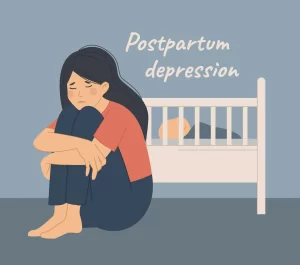Table of Contents
Navigating the complex journey of overcoming substance use disorder (SUD) requires understanding, commitment, and practical strategies. This health condition can impact every facet of a person’s life, creating challenges in relationships, employment, and personal well-being. The key to reclaiming control is acknowledging the problem and taking informed steps toward recovery. In this article, we’ll explore essential aspects of this process, helping you to make an impactful change in your life. Keep reading to discover how you can get your life back on track.
Understanding Substance Use Disorder and Its Implications on Life
Substance use disorder disrupts lives with its pervasive reach, altering brain chemistry and behavior in profound ways. It’s characterized by an inability to regulate one’s use of substances despite the harmful consequences. Understanding the science behind this disorder can demystify its effects and reduce the stigma often associated with it, fostering a compassionate approach to recovery. Chronic substance use affects physical health and one’s emotional and mental state.
The best place to begin the healing process is at a rehab facility like Hart Rehab. You can learn more about their facilities at hartrehab.com. Rehab is an ideal environment to kickstart the journey of recovery from substance abuse. It offers a safe and supportive environment with qualified staff, customized treatment programs, and a structured routine. By addressing the underlying issues and providing various therapeutic modalities, rehab equips individuals with the tools and support they need to overcome addiction and build a healthier, happier future.
Financial health is another aspect often disrupted by SUD, but it can be rebuilt with discipline and support. Utilizing resources like Boost mobile pay bill online can streamline bill payments, reducing stress and helping you stay organized. This not only saves you time and effort but also eliminates the risk of incurring late fees or damaging your credit score. Adopting sound financial management practices is key to establishing a stable and independent life. So, take advantage of these tools and technologies available today to make your life easier and pave the way for a brighter financial future.

Building a Support System for Sustainable Change
A robust support system is the bedrock of successful, long-term recovery. This network typically includes family, friends, healthcare professionals, and peer support groups. These allies offer encouragement, practical assistance, and compassionate understanding throughout the recovery process. Professional treatment options, such as therapy or rehabilitation programs, provide structured support tailored to the complexities of SUD. These services can address underlying issues, develop coping strategies, and provide consistent care, forming a foundational aspect of a sustainable recovery plan.
Peer support groups such as Alcoholics Anonymous (AA) or Narcotics Anonymous (NA) offer community-based solidarity. Bonding with others who have shared similar struggles can be empowering, enabling individuals to realize they are not alone in their challenges. Integrating family and friends into the recovery process can also fortify relationships and open avenues of communication. Loved ones play a vital role, offering a compassionate ear and a shoulder to lean on during vulnerable moments, which are invaluable to maintaining abstinence and personal development.
Embracing New Habits and Strategies for Lasting Recovery

Replacing old habits with new, healthier ones is a crucial aspect of lasting recovery. New hobbies, physical activities, or volunteer work can redirect focus and provide a fresh source of joy and fulfillment. Engaging in these activities encourages a positive shift in identity and lifestyle, away from substance-related behaviors. Effective strategies like mindfulness, meditation, and expressive therapies can contribute to emotional regulation and stress reduction.
Integrating these practices into daily life strengthens mental health, providing a buffer against the pressures that might otherwise trigger a relapse. Nutrition and physical health also play major roles in recovery. Substance use can take a heavy toll on the body, so nurturing it with balanced nutrition and regular exercise promotes healing and boosts well-being, further supporting the journey to sobriety.
As you can see, the pathway to overcoming substance use disorder and getting your life back on track is a multifaceted endeavor. It requires commitment to understanding the complexities of the disorder, recognizing the need for change, setting achievable goals, building a supportive community, and adopting new, healthy habits. Overall, with dedication, support, and the right strategies, sustainable recovery and personal growth are within reach for anyone ready to take on this courageous and life-affirming journey.







